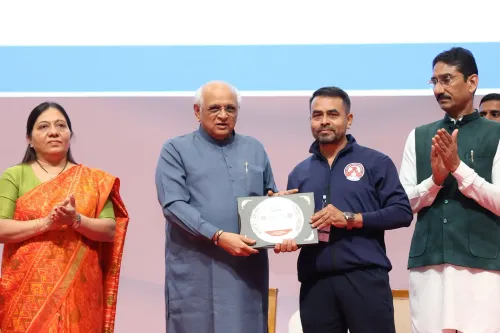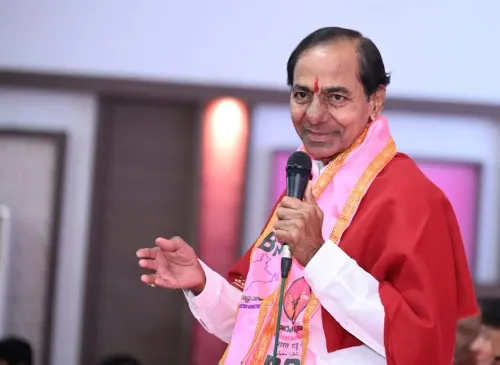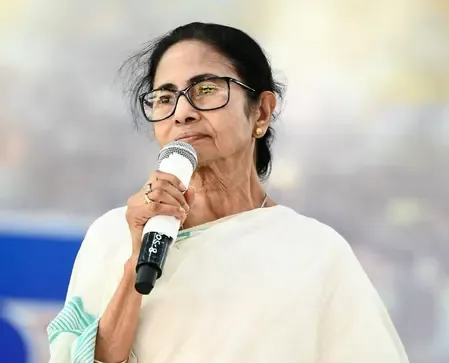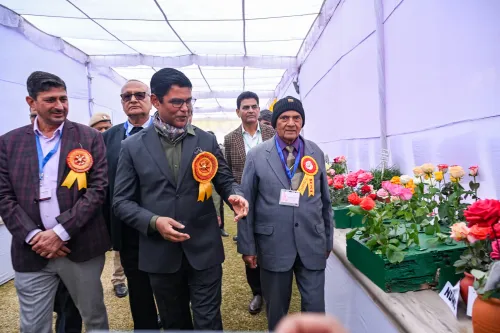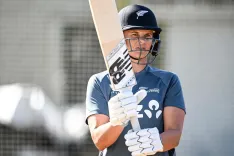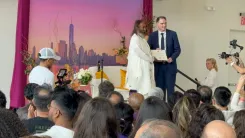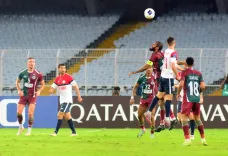Why is Stalin Standing Up for Tamil Nadu at the NITI Aayog Meet?
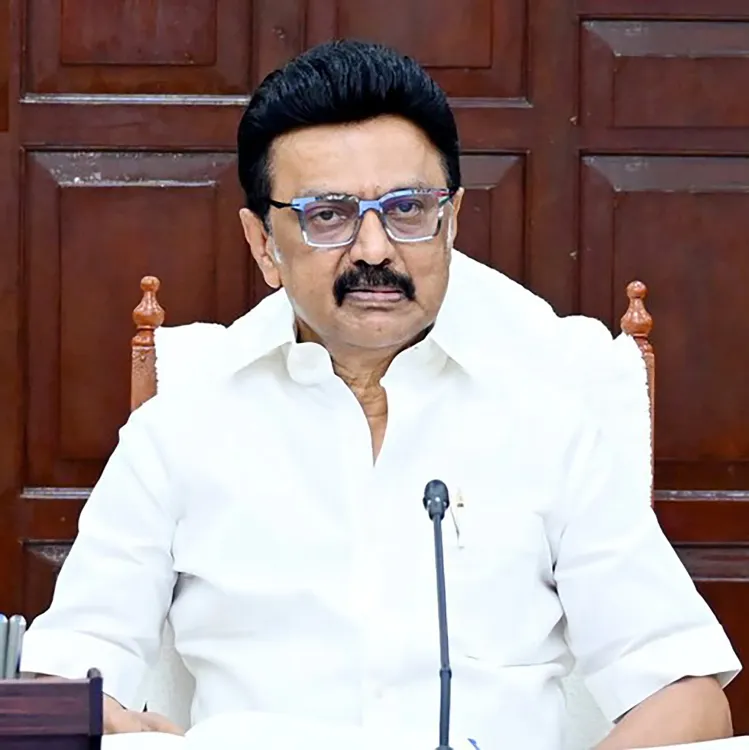
Synopsis
Key Takeaways
- Stalin defends his participation in the NITI Aayog meeting
- Accusations of double standards against EPS
- Stalin emphasizes Tamil Nadu's financial rights
- Legal battles ongoing with the Union government
- Political tensions heighten ahead of the 2026 elections
Chennai, May 21 (NationPress) The Chief Minister of Tamil Nadu, M.K. Stalin, firmly responded to the criticisms from AIADMK General Secretary Edappadi K. Palaniswami (EPS) regarding Stalin's participation in the upcoming NITI Aayog Governing Council meeting on May 24 in New Delhi.
On the social media platform X, Stalin explained his attendance, emphasizing that he aims to advocate for Tamil Nadu’s rightful financial dues.
He questioned the rationale behind EPS's discontent with his efforts to defend the state's rights.
"What is it about my involvement in the NITI Aayog meeting that troubles him?" Stalin, who is also the President of the DMK, asked.
"EPS has consistently shown a tendency to capitulate, whether to Sasikala or Amit Shah. He once insisted that AIADMK would never ally with the BJP, yet after facing scrutiny, he submitted and raised the white flag. Isn’t it ironic that he now accuses me of surrendering?" he remarked.
Stalin reaffirmed his dedication to the party’s legacy and principles, stating his resolve to uphold Tamil Nadu’s rights.
"My hands, raised by Perarignar Anna and guided by Kalaignar Karunanidhi, will solely wave the black and red flag of the DMK. I carry the banner of rights - I will never bow down," he asserted.
Discussing the ongoing legal battle with the Union government, Stalin mentioned a petition in the Supreme Court aimed at securing the release of over Rs 2,000 crore under the Samagra Shiksha Scheme, which the Centre is allegedly withholding. "I have even today filed a petition in the Supreme Court to safeguard Tamil Nadu’s rights. I will steadfastly adhere to my principles and fight for what belongs to our people," he stated.
This exchange of words highlights a significant intensification in the political rivalry between the DMK and AIADMK, as both parties prepare for the upcoming 2026 Assembly elections.


